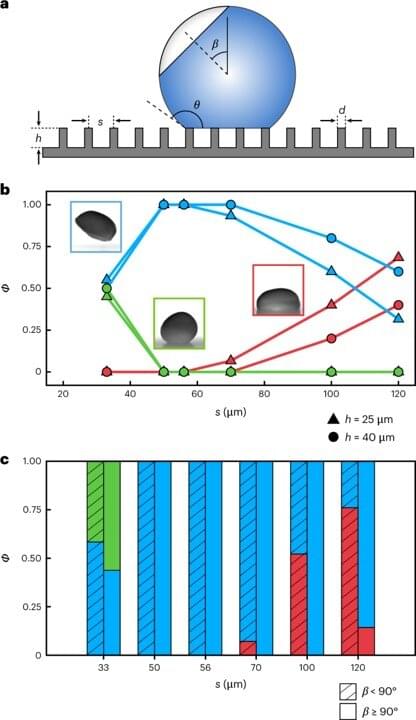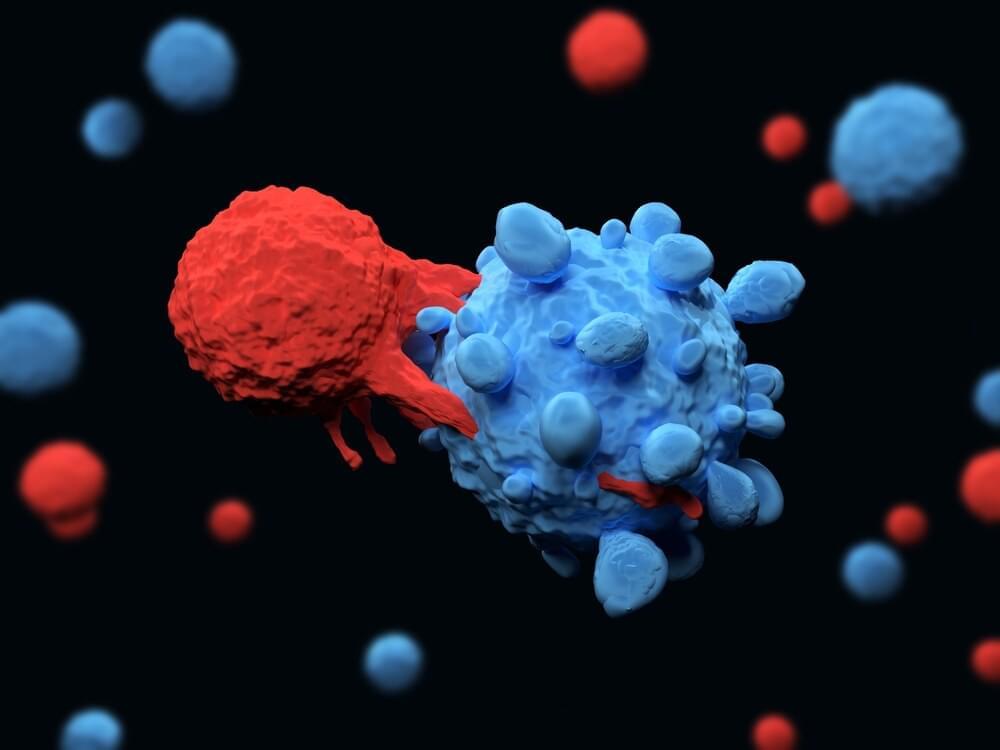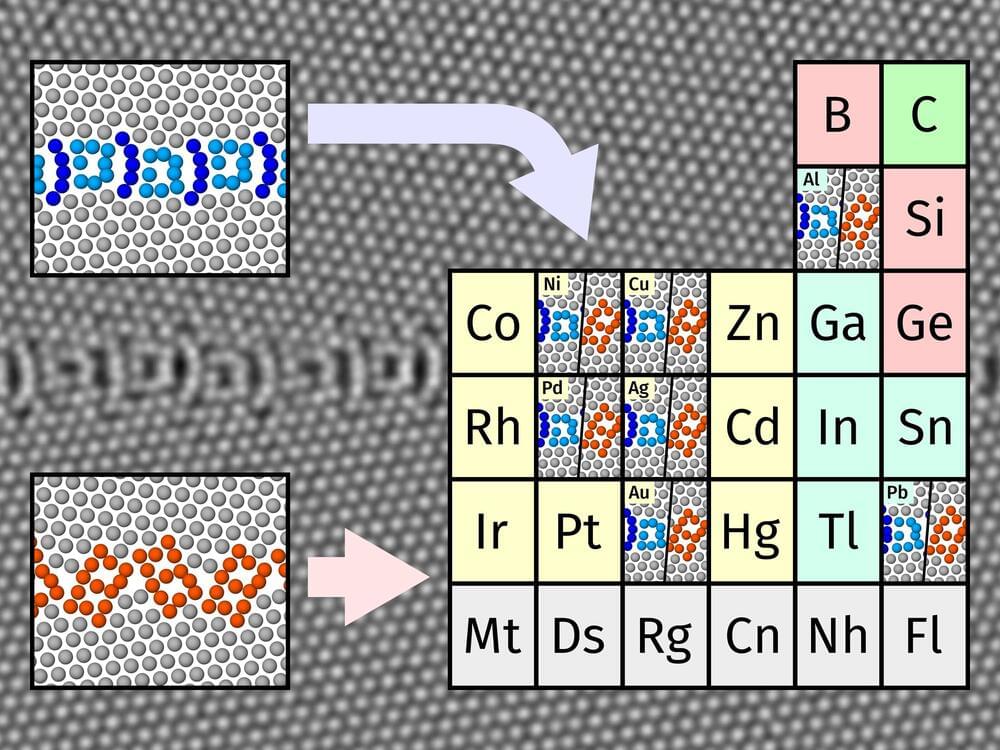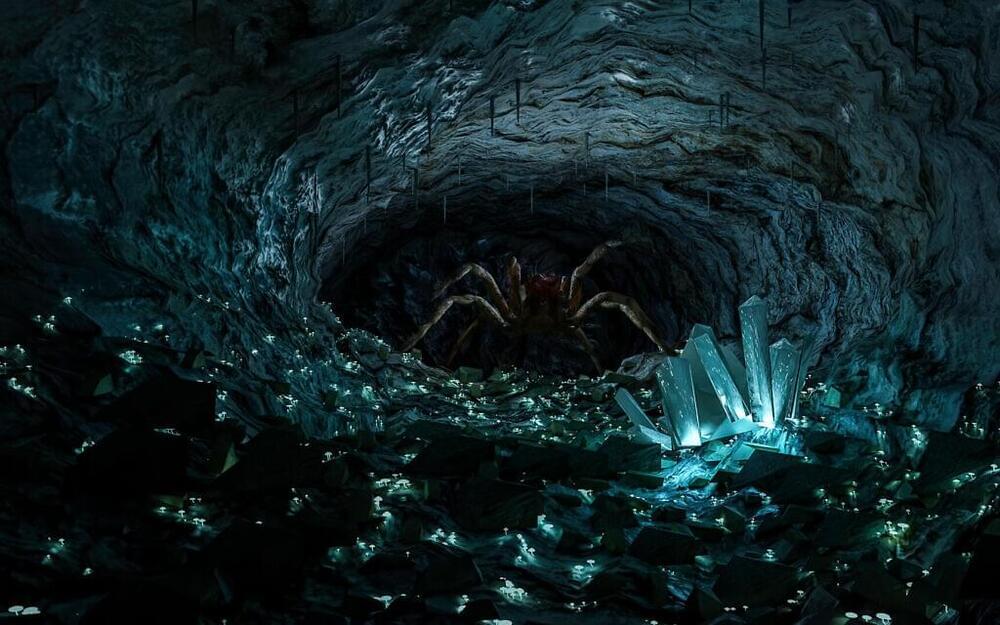Supercooled droplets can typically freeze on surfaces in nature, and have broad-scale influence on industries where they can adversely impact technical efficiency and reliability. Superhydrophobic surfaces are therefore a materials engineering solution to rapidly shed water and reduce ice adhesion to form promising candidates that resist icing.
However, the impact of supercooled droplet freezing and their effects on droplet-substrate interactions as well as resultant applications across ice-phobic surfaces remain to be explored in physics and materials engineering.
In a new report in Nature Physics, Henry Lambley and a research team in mechanical and processing engineering at the ETH Zurich, Switzerland, studied frozen supercooled droplets resting on textured surfaces. They induced freezing by evacuating the surrounding atmosphere and determined the surface properties required to promote ice formation.







